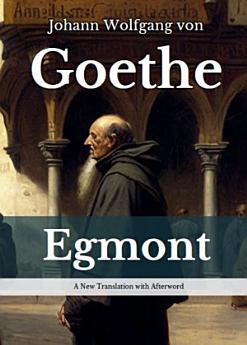Egmont
About this ebook
Set in 16th-century Brussels amid the Duke of Alba’s brutal campaign, the drama intertwines Egmont’s fatal commitment to liberty with the intimate devotion of Klärchen, a commoner whose lyrical ardour elevates private love into public symbol. Structurally indebted to Shakespearean chronicles and Schiller’s early realism, the play transcends mere biography through Beethoven’s iconic overture, commissioned decades later, which amplifies its meditation on sacrifice and historical memory. Egmont’s hallucinatory final vision of freedom as a goddess, preceding his execution, crystallizes Goethe’s belief in transcendent moral victory over tyranny, securing the work’s legacy as both a call for resistance and a poetic inquiry into the costs of political integrity.
This critical reader's edition offers a fresh, modern translation of the original manuscript in Fraktur (the old German script), designed to help any curious reader delve into Goethe's works, using clear, contemporary language and straightforward sentences to illuminate his complex ideas. It includes supplementary material providing autobiographical, historical, and linguistic context to this 18th century work- including an afterword by the translator discussing Goethe’s history, impact, and intellectual legacy, alongside an index of the philosophical concepts he explored—with a focus on Romanticism and Classicism. Included is a comprehensive chronological list of his published writings and a detailed timeline of his life, highlighting the personal relationships that profoundly influenced his philosophy.











